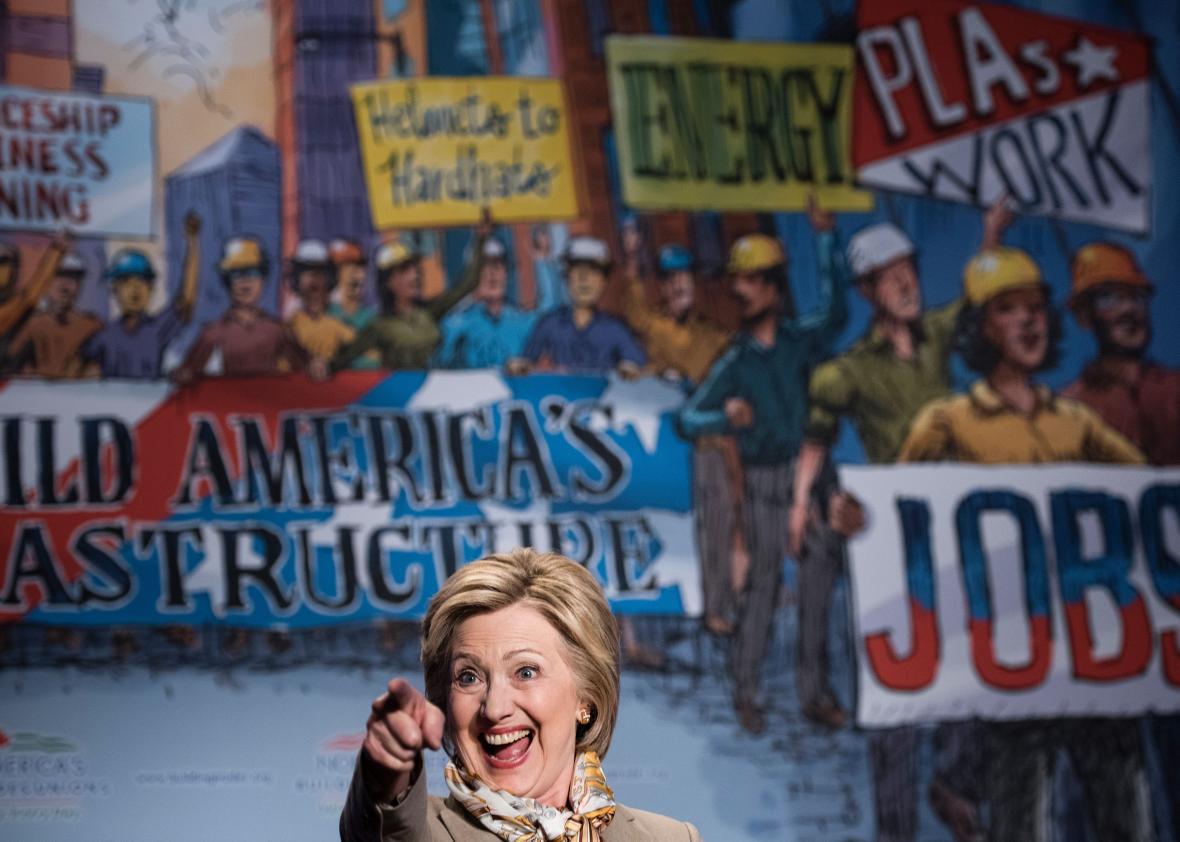Hillary Clinton has won the New York presidential primary, as all polls leading into the race projected she would. We’re still waiting for the final margin, but any win puts Clinton much closer to locking up a the nomination if only because it takes a huge chunk of available delegates off the table for Sanders as the race enters the final stretch. Clinton is inching her way to a final pledged-delegate lead, and in her victory speech Tuesday night, she began the work of reaching out to Sanders supporters. But there’s still no indication that Sanders supporters are ready to rally around her.
In terms of delegate math it doesn’t especially matter whether Clinton wins by 1 percentage point or 10 or 20. It wouldn’t have changed the hard calculation if Sanders posted a narrow win, either. The only result that would have changed the course of the race was a decisive win by Sanders that cut hard into Clinton’s pledged-delegate margin, which at the beginning of the night stood at 206 by FiveThirtyEight’s count and 244 by the Associated Press’s more cautious tabulation, which hasn’t fully factored in Washington’s results yet. Ever since Clinton’s blowout sweep on March 15—since before that, really—Sanders’ only strategy for taking the pledged-delegate lead was to win the slate of favorable primaries and caucuses over the next month and hope to parlay that into a strong shift away from Clinton before the remaining delegate-rich contests in New York, Pennsylvania, New Jersey, and California. He was successful in the first leg, handily taking contests in Idaho, Utah, Alaska, Hawaii, Washington and Wisconsin. Now we know the energy he gained there was insufficient, at least in this first go-round, to propel him to a win on less favorable ground. Sanders is moving in the wrong direction and will be even further off the mark by this time next Tuesday as time passes, delegates are allocated, and the margin by which he needs to win each remaining state increases.
But the Democratic race is in an interesting phase right now. (Not nearly as interesting as the Republican race, but few things in this life are.) Right at the moment that Sanders is struggling to make a necessary dig into Clinton’s pledged-delegate lead, his national numbers are looking better than ever. For the first time he is in a statistical tie with Clinton in national polling. And Clinton’s net favorability rating among Democrats, as Gallup reported last week, is at its lowest point in the cycle at +36 (66 percent favorable, 30 percent unfavorable). That +36 figure is a better number than any Republican candidate’s net rating in his own party. But it’s still only “about half of what it was at its peak last fall,” and below Sanders’ +52 rating, Gallup’s editor-in-chief Frank Newport writes. “The big picture for Sanders is one of image improvement over time as he has become better known. This directly contrasts the big-picture trend for Clinton of a decline in her image over time, particularly in recent weeks.”
It is possible that when Clinton does clinch a majority of pledged delegates, she will be trailing Sanders in national polling. This is not the way it’s supposed to end up. Though Clinton was closer to then-Sen. Barack Obama in pledged delegates down the stretch in 2008 than Sanders has ever been to her, Obama seized and mostly kept the national polling lead from the beginning of February onward. Once all Democrats finished voting in 2008, Obama had the most delegates, and polls reflected that the national party was satisfied with him as the choice. In 2016, Clinton could finish with the most delegates but lack a majority of the Democratic public’s favor in a two-person race.
These national polls among Democrats could swing back Clinton’s way after she accumulates a few Northeastern wins. And even if they don’t, obviously, a national polling lead in the end wouldn’t give Sanders any claim to being the “real” choice of the voters, since actual vote totals would suggest the opposite. The problem for the Democratic Party is that Sanders might think it does and use it as a justification to extend his campaign to the convention in an effort to sway superdelegates to his cause. This would only serve to increase the disappointment that Sanders supporters feel when he officially loses and lessen the available timeframe for unifying the party ahead of November.
